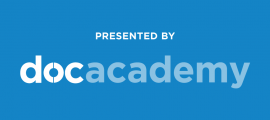How do Into Film Clubs work?
Find out more about what's involved in running your very own Into Film Club.



15–16
Short (1-4 activities)
This four-lesson series uses short clips from the documentary One Mile Away, in which two warring gangs in inner city Birmingham attempt to bring peace to their neighbourhoods. The lessons provide fertile ground for students to have rich and fascinating spoken interactions, guiding them through the core principles of effective oracy including working towards a written speech judged for persuasive techniques and/or mediation techniques.
Lesson One - What is a Gang?
Focusing on understanding what makes a gang, this lesson opens up the discussion of how gangs can affect different parts of the community they inhabit whilst encouraging students to take part in a written discussion.
Learning objective:
Clip(s) to Use - Clip 1: Burgers & Johnsons
Lesson Two - Why Do Gangs Exist?
Focusing on the causes and effects of being in a gang, this lesson uses introductory clips from One Mile Away to look at the necessary conditions that can create gang culture, using group discussion to develop their ideas.
Learning objective:
Clip(s) to Use - Clip 1: Burgers & Johnsons, Clip 2: Cameras in the Hood
Lesson Three - Can Gang Warfare End?
Developing speech writing skills, this lesson allows students to use evidence to create a persuasive argument for why gangs should end. To do this they must also consider other people's points of views and counter arguments.
Learning objective:
Clip(s) to Use - Clip 4: Who is the Real Enemy?, Clip 5: Shabba and Dylan Meet
Lesson Four - How Can the Conflict be Resolved?
Focusing on learning and using mediation techniques, based on what they have seen in One Mile Away. Students use a forum style method to try out these techniques and evaluate their effectiveness through role-play and class debate.
Learning objectives:
Clip(s) to Use - Clip 6: Peace Talks, Clip 7: A Plea to Do Better

We have developed a large catalogue of educational resources since launching in 2013, and some references and terminology will inevitably have dated as society and language evolves. We are aware of this and will be updating resources when our production schedule allows.